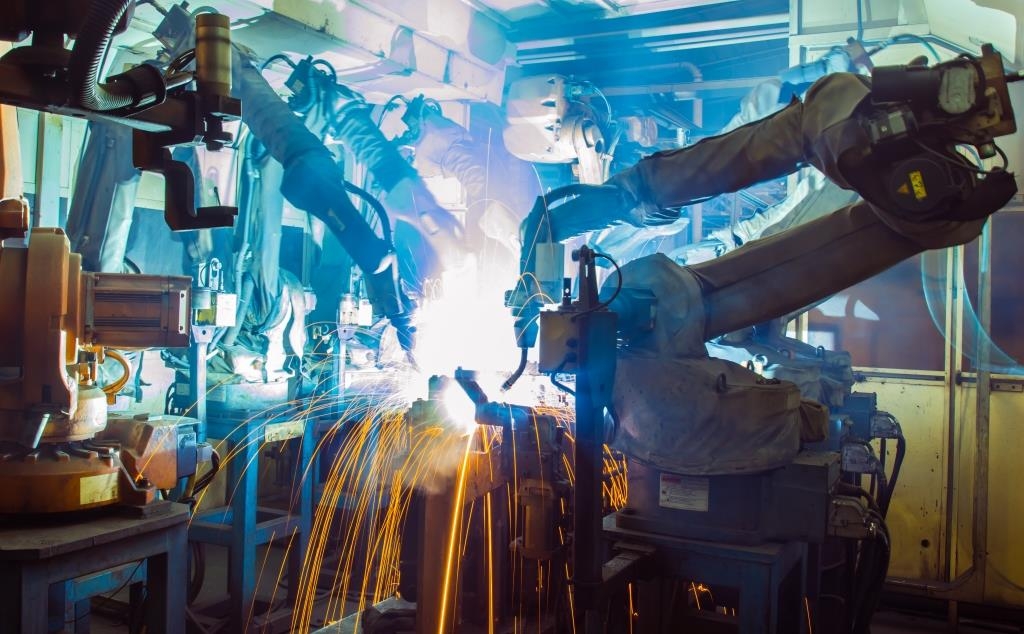The potential for industrial automation of the future is great

“It's not about the fact that the machines will occupy our jobs, but that it will happen very soon,” writes David Willetts.
Robots will occupy our jobs. So says Martin Ford (Martin Ford) in the book "The Rise of the Robots" ("The Rise of the Robots") . Andy Haldane, a senior economist at the Bank of England, recently said machines could replace 15 million British workers. Will artificial intelligence take over? Unlikely.
Innovation always puts workers at risk. One has only to look at the race among automakers in the development of autonomous vehicle. Electricity led to the second industrial revolution, destroying old jobs in oversaturated industries, leaving workers with insufficient skills on the sidelines of the manufacturing process.
It became difficult for blacksmiths in 1920, when industrialists chose to use electric arcs and various methods of mass production. The skills that have developed over many years of hard work have ceased to mean anything.
This is one of the reasons why people with higher education tend to have more money: they simply are able to better adapt to the waves of technological change .
Industrial cities used to grow around coal deposits or water sources that were needed for machinery to operate. After that, they fell into decay, and cities began to form around universities and research institutes.
And if robots and machines pose a threat to individual industries, then the economy as a whole is quite capable of adapting. Technological advantages give huge benefits to consumers, as goods become cheaper, new products appear that no one could imagine before.
The desires of people are endless. If we take away things that were invented only a few decades ago, we will feel at ease. In addition, we always strive to communicate with other people. Cinema, for example, could not destroy the theater; free access to audio recordings has led us to become more willing to go to concerts and listen to our favorite artists live. The technological revolution has changed many industries, but it has not destroyed jobs.
One of the reasons why paranoia around robots is spreading so fast is because companies are snatching a huge chunk of the pie from the economy at the expense of workers, while employment in the labor market is declining.
The reason for this is also a mistake in the policy, which henceforth should not be repeated. America was the world leader in education for workers, but today Britain has been able to overtake it. Since 1999, the ratio of 25- and 54-year-olds in the UK labor market has grown by 3%, while in the USA there has been an equivalent decrease.
Inequality in wages in the UK has not actually changed since the beginning of the 21st century, while in the USA this indicator is growing. The problem with the UK is not that technology is developing too fast, but that inventions are not fast enough in the market.
First of all, government support and investments are needed to stimulate technology, in particular in the field of automation and robots. In this regard, the United States is much more "federal", local authorities support the commercialization and development of new technologies. But the UK needs to catch up with them.
The problem that many economies face is not that robots can occupy our jobs , but that they can’t do it fast enough and the workers will retire before they are replaced by machines.
Due to the combination of low birth rates and a negative attitude towards immigration, Japan has long become a leader in the field of creating robots.
Japanese are pioneersin creating technologies to help older people — from exoskeletons that help them move around, to social robots that can keep them company.
The industry is adapting too slowly. We consider robots machines, and the usual model of behavior from the time of industrialization makes us stay away from them.
In addition, their potential is underestimated. People should learn to think of robots not as rivals, but as colleagues .
Thanks to such machines, it is possible to reduce the burden on people so that the latter can relax more and engage in interesting activities. It would be like G. Wells’s book, The Time Machine, only the proletariat would consist of robots, and people would be an elite enjoying life.
Today we are faced with a problem when there is much more work than workers capable of performing it. The solution may be robots. A decision, not a threat .
